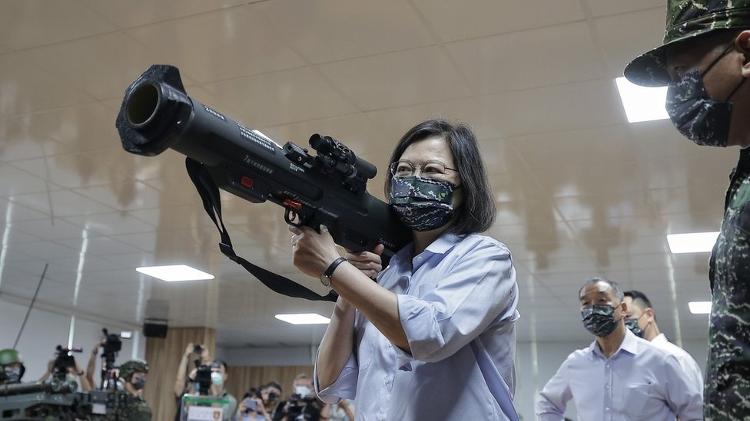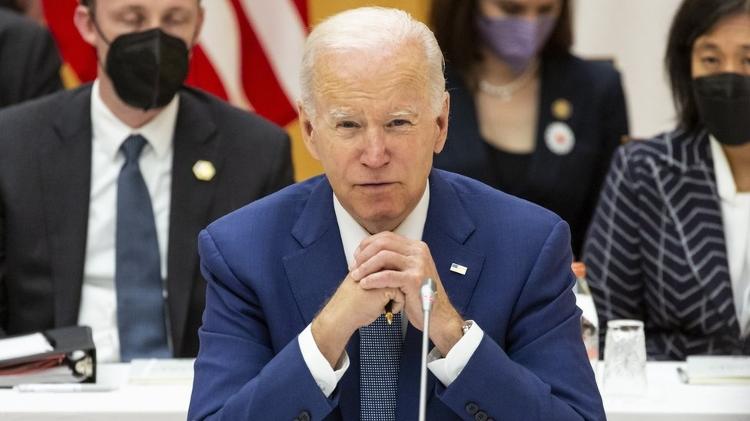Weeks after U.S. President Joe Biden warned China about Taiwan, the Chinese government made its sharpest statement ever, saying it would “resolutely crush any attempt at independence” for the island.
On Sunday, Chinese Defense Minister General Wei Fenghe accused the United States of supporting Taiwan’s independence and said the Americans “violated their promises in Taiwan” and “interfered” in China’s affairs.
“I will make this clear: If anyone dares to separate Taiwan from China, we will not hesitate to fight. We will fight at all costs and we will fight to the end. It is the only option for China,” the minister said. Shangri-la Dialogue. , an Asian security summit held in Singapore.
Biden said China was “flirting with danger” by flying warplanes near Taiwan. The American promised to protect the island militarily if attacked.
Taiwan, which sees itself as a sovereign nation, has historically been claimed by China. China, on the other hand, sees it as a “rebel” province. But Taiwan’s biggest ally is in the United States. An American law requires the United States to help the island defend itself.
The escalation in the rhetoric of the two countries comes as China sends more and more warplanes to Taiwan’s air defense zone and the US sends warships to the island’s waters.
Are the US and China close to a military conflict?
higher voltages
A great fear is that a war will start with the Chinese invasion of Taiwan. The Beijing government has said in the past that it can forcibly retake control of the island if necessary.
But most analysts say this is unlikely – at least not yet.
There is debate among experts about whether China has the military capacity to take Taiwan. The island has significantly increased its air and sea defense.
But many agree that even Beijing admits that such a move would be costly and disastrous not just for China but for the rest of the world.
“There’s a lot of rhetoric, but the Chinese have to be very careful if they want to invade Taiwan, especially at this time of the Ukrainian crisis so imminent. The Chinese economy is much more connected to the global economy than Russia’s,” says William. Choong is from the Institute of Southeast Asian Studies, a Singapore government research institute.
China has repeatedly said it wants “peaceful reunification” with Taiwan – a claim General Wei repeated on Sunday – and will only act if faced with provocation.
An example that China might see as a provocation would be Taiwan’s formal declaration of independence. However, this is something that President Tsai Ing-wen categorically avoided. According to him, Taiwan is already a sovereign state.
While there are those who want to move towards independence, most Taiwanese support this position – known as “maintaining the status quo”.
Likewise, the United States will be reluctant to engage in costly military conflict in Asia and has repeatedly signaled that it does not want war.
US Secretary of Defense Lloyd Austin, who also participated in the dialogue, said in his speech that the US does not support Taiwan’s independence and does not want a “new Cold War”.
“Both sides keep their guns in Taiwan. They (the US and China) don’t want to appear strong and be seen as backed out,” says Collin Koh, a researcher at the S Rajaratnam School of International Studies in Singapore.
“But at the same time, they’re very careful not to engage in direct confrontation. They look at each other’s rhetoric with wide eyes, and both sides try to gauge the risk.”
Koh noted that a meeting between General Wei and Austin at the Shangri-la Dialogue was seen as a positive sign and wanted to show that both sides were “willing to sit still and talk, reach consensus and disagree.” . . .
The researcher said this would reduce the likelihood of miscalculations that would result in a conflict and “general revitalization of dialogue” that was missing in the Donald Trump administration (2017-2021).
Despite this, analysts believe that China and the US will continue with tense rhetoric for the foreseeable future.
China could intensify its “grey zone war”, designed to erode Taiwan’s military forces and patience by sending more fighter jets and creating disinformation campaigns, says Ian Chong, a China expert at the National University of Singapore.
In the past, Taiwan has accused China of creating disinformation campaigns ahead of elections on the island. Taiwan will hold important elections later in the year.
For the US and China at least, especially with important events on the horizon – the US midterm elections in November and the year the Communist Party of China is expected to further consolidate the power of 20th Chinese President Xi Jinping on Monday.
“The good news is that neither side is willing to escalate tensions,” says Chong.
“But not climbing doesn’t mean we’ll get to a better straight. So we’re all stuck in this position for a while.”
source: Noticias
[author_name]

